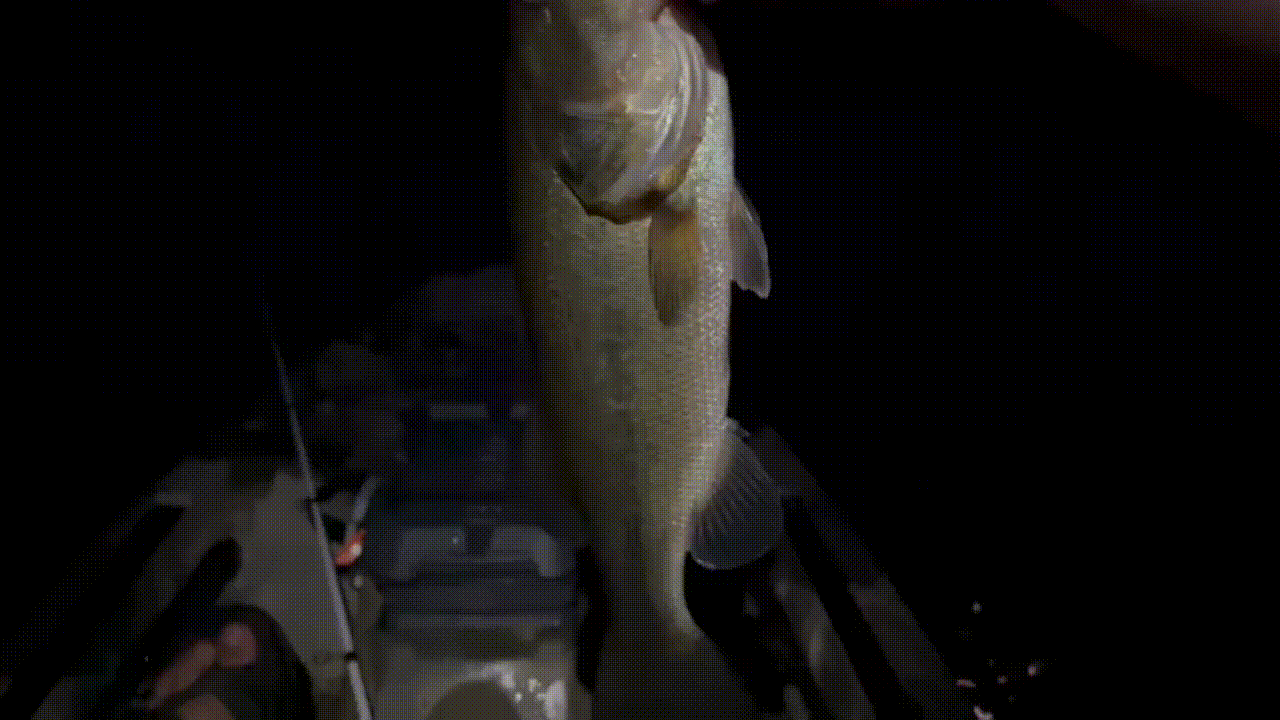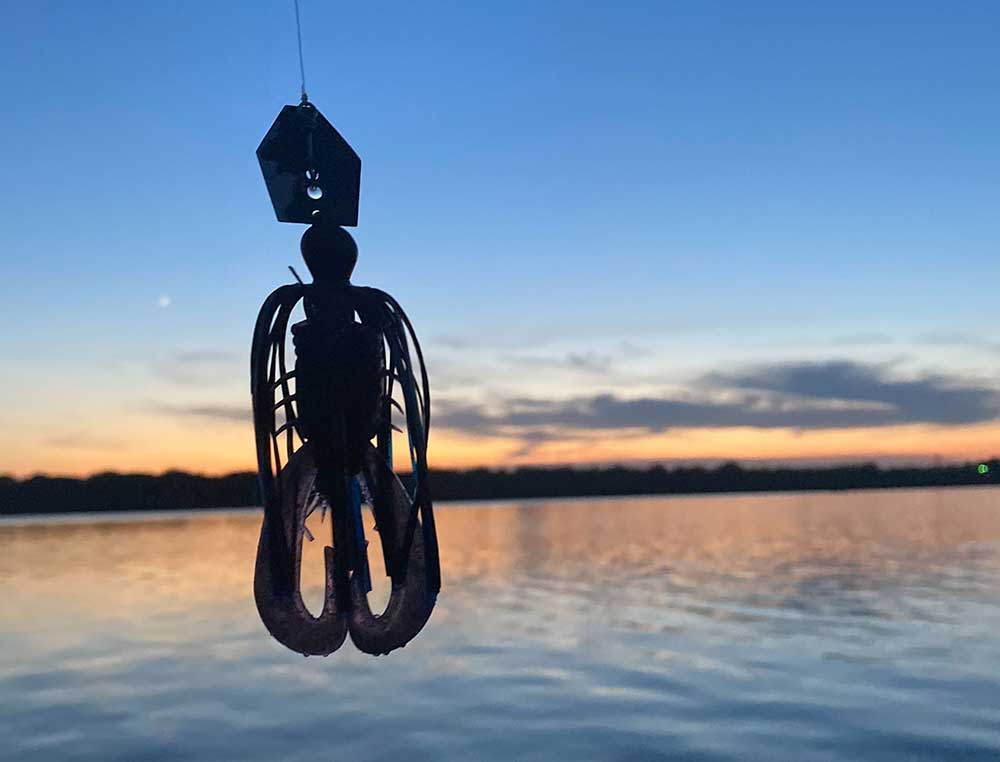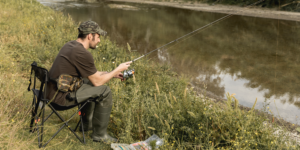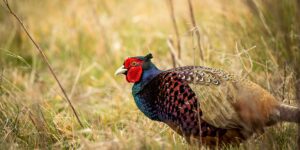Bass fishing is a beloved pastime for anglers all over the world, but have you ever tried catching these elusive fish under the cover of darkness? Bass fishing at night offers many advantages, including less competition from other anglers, more active fish, and cooler temperatures. However, successful night fishing requires the right gear, techniques, and safety precautions. From choosing the best rods and reels to adapting your techniques to the darkness, this article offers valuable tips and insights to help you make the most of your next nocturnal adventure.
Learn the best time to catch bass in any season.
Why limit yourself to public land when there are millions of acres of private land to explore.
Advantages of Nighttime Bass Fishing
Night bass fishing offers several advantages over daytime fishing, including:
Less competition
During the day, popular fishing spots can be overcrowded, making it difficult to find the perfect location to cast your line. At night, you’ll have fewer anglers to compete with, increasing your chances of landing a trophy catch.
More active bass
Bass tend to be more active at night, as they move into shallower waters to feed on smaller fish and insects. This increased activity makes them easier to locate and target, increasing your chances of success.
Cooler temperatures
Fishing during the day can be uncomfortable due to the heat, especially during the summer months. At night, cooler temperatures provide a more pleasant experience, allowing you to focus on your fishing without worrying about the sun.

Night Fishing Gear
Having the right gear is essential for a successful night fishing trip. Consider the following items:
Rods and reels
A medium-heavy rod with a fast action and a quality baitcasting reel is ideal for night fishing. These tools will provide the sensitivity and power needed to detect subtle bites and set the hook in the dark.
Line and tackle
Choose a low-visibility line, such as fluorocarbon or braided line, for stealthy presentations. Bring a variety of lures, including topwater baits, jigs, soft plastics, crankbaits, and spinnerbaits, to maximize your chances of success.
Safety equipment
A life jacket, whistle, and first aid kit are essential safety items for any fishing trip, especially when venturing out after dark.
Lights
A headlamp will keep your hands free while providing light for tasks like tying knots and unhooking fish. Additionally, consider bringing a floating lantern or LED light stick to illuminate the surrounding water and attract fish.
The hassle free way to monetize your acreage.
Night Fishing Techniques
Adapt your techniques to the darkness and use the following strategies to catch more bass at night:
Topwater baits
Topwater lures like buzz baits, poppers, and frogs can be very effective at night, as they create noise and surface disturbance that attracts bass.
Jigs and soft plastics
Slowly work jigs and soft plastics along the bottom, paying close attention to your line for any signs of a bite. Bass will often strike these baits with more subtlety at night, so be prepared to set the hook quickly.
Crankbaits
Deep-diving crankbaits can be highly effective at night, especially when targeting bass that are holding near submerged structures or drop-offs. Choose a lure with a wide wobble and a rattling sound to help bass locate it in the darkness.
Spinnerbaits
A slow-rolled spinnerbait can trigger aggressive strikes from bass at night. Opt for larger blades and darker colors to create a more visible silhouette in the low light conditions.

Key Considerations for Night Fishing
Before you head out for your night bass fishing adventure, keep these factors in mind:
Moon phases
Bright moonlit nights can be excellent for bass fishing, as the increased visibility allows bass to locate and ambush their prey more effectively. However, don’t be discouraged if the moon is not visible; bass will still be on the prowl, albeit with slightly different feeding patterns.
Full Moon / Bright Moon
Weather conditions
Just like during daytime fishing, weather conditions play a significant role in bass behavior at night. Overcast or rainy nights can be productive, as the low light conditions can make bass more aggressive.
Water clarity
Clear water generally makes for more challenging night bass fishing, as the fish can be more easily spooked. Murky or stained water, on the other hand, can provide an advantage, as bass will rely more on their lateral line to detect prey, making them more receptive to your lures.
Night Fishing Safety Tips
Always prioritize safety when fishing at night by following these guidelines:
- Inform someone of your plans and expected return time.
- Always wear a life jacket and carry safety equipment like a whistle and a first aid kit.
- Use lights, such as a headlamp, to increase visibility and reduce the risk of accidents.
- Familiarize yourself with the fishing area during daylight hours to minimize the risk of getting lost or injured in the dark.
Conclusion
Nighttime bass fishing can be a thrilling and rewarding experience for anglers willing to embrace the challenges of fishing after dark. With the right gear, techniques, and safety precautions, you can enjoy a memorable adventure and potentially hook some trophy bass. So, don’t be afraid to venture out under the moonlit sky and cast your line into the mysterious depths of the night.
Why limit yourself to public land when there are millions of acres of private land to explore.
FAQs
1. Is it legal to fish for bass at night?
Fishing regulations vary by location, so it’s important to check local laws and regulations before heading out for a nighttime fishing trip.
2. What colors work best for night bass fishing?
Dark colors, such as black, blue, or purple, are often more effective at night, as they create a more visible silhouette against the low light conditions.
3. How can I detect bites at night?
Pay close attention to your line and rod tip, as bites may be more subtle at night. You can also use a line that is more sensitive or has a higher visibility under low light conditions.
4. Are there any specific safety concerns when fishing at night?
Safety should always be a priority, especially when fishing at night. Ensure you have appropriate safety gear, adequate lighting, and inform someone of your plans before heading out.
5. Do I need a special fishing license for night fishing?
Fishing license requirements vary by location, so check with your local regulatory agency to determine if a special license is necessary for night fishing.
6. Is fishing at night good for bass?
Yes, fishing at night can be a good time to target bass. Bass tend to be more active at night, especially during the warmer months of the year when the water temperature is higher. Additionally, those who night fish avoid some of the crowds and boat traffic that can be present during the day, making for a more peaceful and enjoyable fishing experience, as well as being easier to catch fish!
7. What time should I fish for bass at night?
The best time to fish for bass at night will depend on a variety of factors, including the season, the weather conditions, and the behavior of the bass in the area you’re fishing. As a general rule of thumb, however, dusk till dawn is the best time – that is – to start fishing for bass about an hour before sunset and continue until about an hour after sunrise.
8. What color do bass like at night?
Bass tend to rely more on their sense of vibration and smell than their sense of sight at night, so color is generally less important than other factors like lure movement and noise. That said, darker colors like black, brown, and purple can increase night fishing success because they create a silhouette that stands out against the lighter background of the water. Using the right lure is important, lures that glow in the dark or have reflective surfaces can be effective for your night trip because they can catch the attention of bass in low-light conditions.



